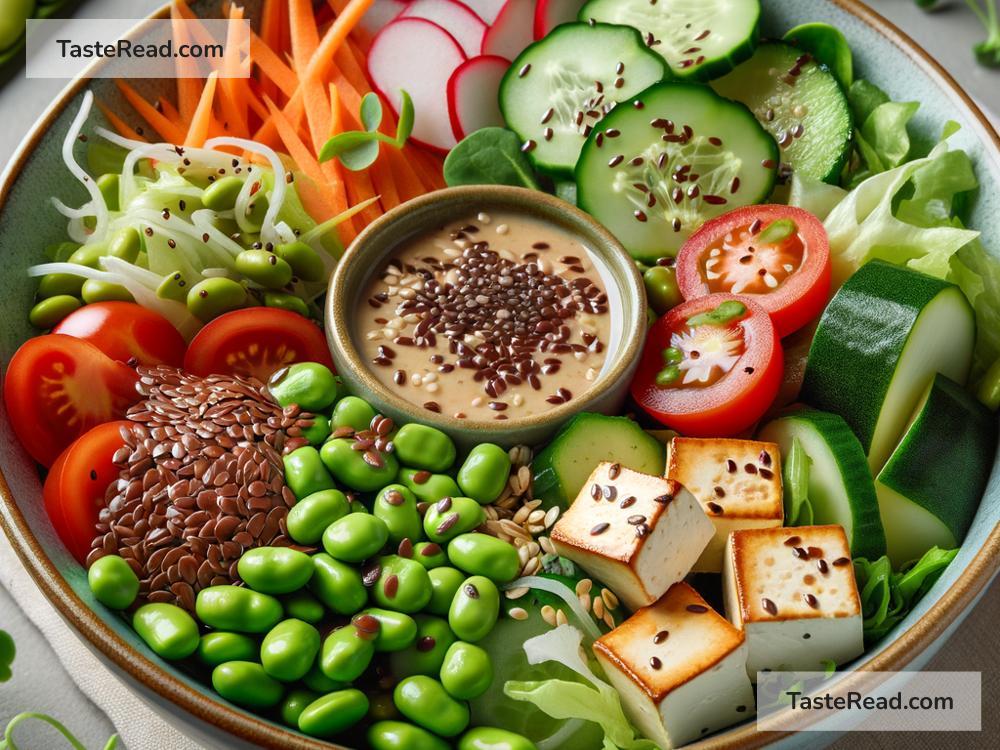Understanding the Role of Dietary Phytoestrogens in Health
We often hear the old saying, “You are what you eat,” and when it comes to staying healthy, it’s pretty accurate. Food provides us with essential nutrients that play a huge role in our well-being. But sometimes, certain compounds found in specific foods can have unique effects on our bodies, beyond basic nutrition. One such group of compounds is phytoestrogens. While they sound complicated, they are easier to understand than you might think. Let’s explore what phytoestrogens are, how they work, and their impact on our health.
What Are Phytoestrogens?
Phytoestrogens are naturally occurring compounds found in plants. The word “phyto” means plant, and “estrogen” refers to the primary female sex hormone in humans. So, phytoestrogens are plant-based compounds that have a structure and function similar to estrogen, the hormone responsible for regulating many processes in the human body.
But it’s important to note that they are not hormones. Instead, they act somewhat like estrogen in the body by binding to estrogen receptors and mimicking its effects. Their activity in the body can be weak compared to the real hormone, but that doesn’t mean they’re insignificant. For some people, phytoestrogens can have either beneficial or unwanted effects, depending on individual health needs.
Foods Rich in Phytoestrogens
Phytoestrogens are found in various plant-based foods that are likely part of your everyday diet. Some of the richest sources include:
-
Soy and Soy Products: Foods like tofu, soy milk, and edamame are famous for their high phytoestrogen content. Soy contains isoflavones, a type of phytoestrogen that has been closely studied for its health effects.
-
Flaxseeds: These tiny seeds are packed with lignans, another form of phytoestrogen.
-
Legumes: Chickpeas, lentils, and other beans contain phytoestrogens, although in smaller amounts than soy.
-
Vegetables and Fruits: Foods like broccoli, carrots, apples, and berries contain lower levels of phytoestrogens.
-
Whole Grains: Grains like oats and barley also contain phytoestrogens, though not in very high concentrations.
How Do Phytoestrogens Work?
Phytoestrogens act by interacting with the body’s estrogen receptors, which are like tiny docking stations on cells. They can mimic the role of estrogen in some ways or block estrogen from binding to the receptor in others.
This versatility means that:
-
When Estrogen Levels Are Low: Phytoestrogens can provide mild estrogen-like effects, possibly helping balance hormonal activity. This is why they are often discussed in relation to menopausal women who experience a natural drop in estrogen.
-
When Estrogen Levels Are High: Phytoestrogens can sometimes block the action of natural estrogen, helping to lower excessive estrogen activity. This can be relevant for certain health conditions tied to estrogen dominance.
Health Benefits of Phytoestrogens
Researchers are actively studying phytoestrogens because they have been associated with various health benefits. Here are a few key areas where they may play a role:
-
Managing Menopausal Symptoms
As estrogen levels naturally decline during menopause, some women experience symptoms like hot flashes, night sweats, and mood swings. Phytoestrogen-rich foods, especially soy, have been linked to reduced severity of these symptoms. They offer a natural alternative to hormone replacement therapy for some women. -
Bone Health
Estrogen plays a key role in maintaining bone density, so its decline during menopause can lead to weaker bones. Phytoestrogens may help support bone health by mimicking some of estrogen’s protective effects. -
Heart Health
Some studies suggest that phytoestrogens may help lower the risk of heart disease. They’ve been shown to help reduce LDL (“bad” cholesterol) and improve blood vessel function. -
Cancer Prevention
There is promising research suggesting that phytoestrogens may play a role in protecting against hormone-related cancers, such as breast and prostate cancer. By blocking estrogen’s stronger activity, they could potentially reduce cancer risk in some cases. -
Improved Skin Health
Some evidence indicates that phytoestrogens could help maintain collagen and elasticity in the skin, supporting a youthful appearance.
Are There Risks or Drawbacks?
While phytoestrogens can offer benefits, they are not without controversy. Some concerns include:
-
Hormonal Effects: Since phytoestrogens interact with hormones, some experts worry about their effects on hormonal balance, especially in children or individuals with hormone-sensitive conditions.
-
Conflicting Evidence: Not all studies agree on the benefits. For example, while some studies suggest phytoestrogens protect against certain cancers, others indicate they may stimulate cancer growth in very specific cases. It depends on individual circumstances.
-
Moderation Is Key: Like anything in nutrition, consuming excessive amounts of phytoestrogens may not be advisable. Balance is always best.
How Can You Incorporate Phytoestrogens Into Your Diet?
If you’re curious about adding phytoestrogens to your diet, the good news is that they are easy to incorporate. Enjoying foods like tofu, edamame, flaxseeds, or whole grains in moderation can be a simple way to experiment. Always remember to consult your doctor or a dietitian if you have health concerns, especially if you’re pregnant, breastfeeding, or managing a hormone-related condition.
The Bottom Line
Phytoestrogens are fascinating compounds that show us how plants can impact our bodies in unique ways. While they’re not a cure-all, they may offer helpful benefits for certain health issues, particularly those related to hormones. The best approach is to stick to a balanced diet, enjoy phytoestrogen-rich foods in moderation, and listen to your body. With the right knowledge, we can use food to support better health and live our best lives.


